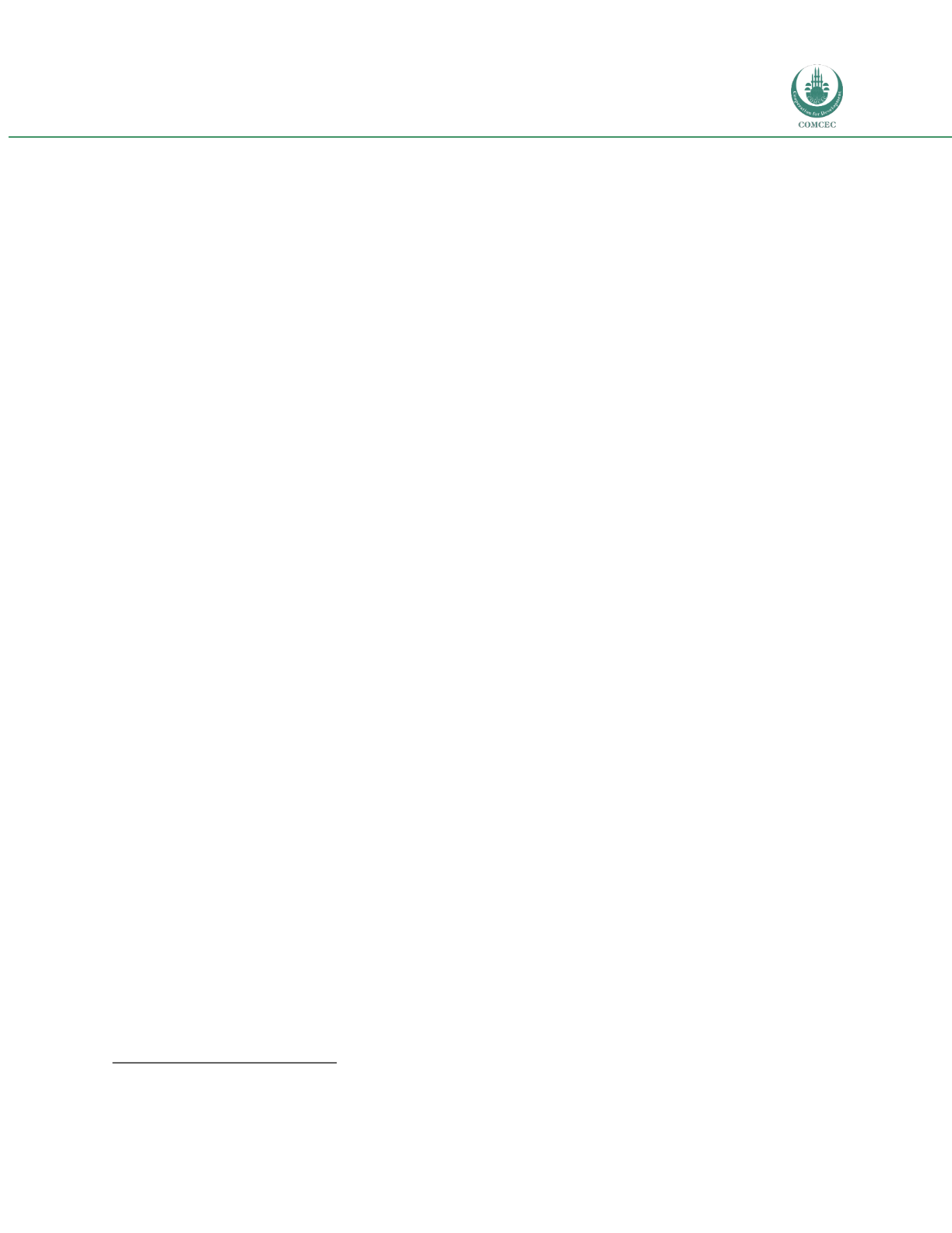

Strengthening the Compliance of the OIC Member States
to International Standards
87
accredited laboratories in potential export sectors to test physical properties (such as flammability of
toys
9
) and mechanical quantities (tear test on toys) according to European standards. Egypt’s public
sector approach runs into limitations in this area: in most countries, private laboratories perform an
important role in terms of testing. To loosen the bottlenecks companies are experiencing, Egypt will
need to examine ways of increasing the number of testing laboratories, which is relatively low, including
through appropriate use of the private sector, backed up by accreditation processes.
GOIEC currently has 26 offices and laboratories located at all the major sea and airports for import
inspection as well as 11 others located throughout the country for export inspection. Inspection
procedures have been unified by GOEIC since 2000 and are all undertaken in one phase. They are
carried out in accordance with national standards issued by EOS, or with standards from other countries
should local standards be unavailable. To further facilitate trade inspection procedures, new
import/export regulations were issued in 2005, according to which importers are allowed to use
certifications of conformity from any internationally accredited laboratory inside or outside of Egypt.
Inspection performed by GOEIC can take up to several weeks, and 2-3 if performed by or by a private
body that is recognized by GOEIC (OECD, 2010). GOEIC’s accredited laboratories acquired ISO
9001/2000 certification in 2008.
The unification of the Egyptian domestic market and the present “import-export” market under a
common market authority is necessary to guarantee compliance with international standards and
enhance export performance. Yet, such a reform would put GOEIC and EOS in direct competition and
would make it unclear how they should operate. Notification and rapid alert systems are also domains
where EOS is still searching for international best practice support (European Commission, 2014).
In addition to the Egyptian quality mark, conformity mark, and Halal mark granted by EOS, there are
other private entities that grant international certificates in management systems such as ISO
certificates. In total, Egypt has twelve certification authorities, including EOS. It is difficult to be
categorical about the appropriateness of this number, as there is a tradeoff between wide recognition
and sectoral expertise. In any case, given the sectoral concentration of Egypt’s exports, the number of
certification authorities appears broadly appropriate, although issues such as time and cost need to be
considered in deciding whether or not to alter this approach in the future.
Ministerial decree no. 180/1996 states that all imports must abide by Egyptian product standards, or
international standards in case the former are unavailable. Ministerial Decrees no. 180/1996 and no.
291/2003 stipulate that in case there is no Egyptian standard for a product, one of the following
9
Toys have been on the list of sectors subject to the ACCA agreement between Egypt and the EU.
















